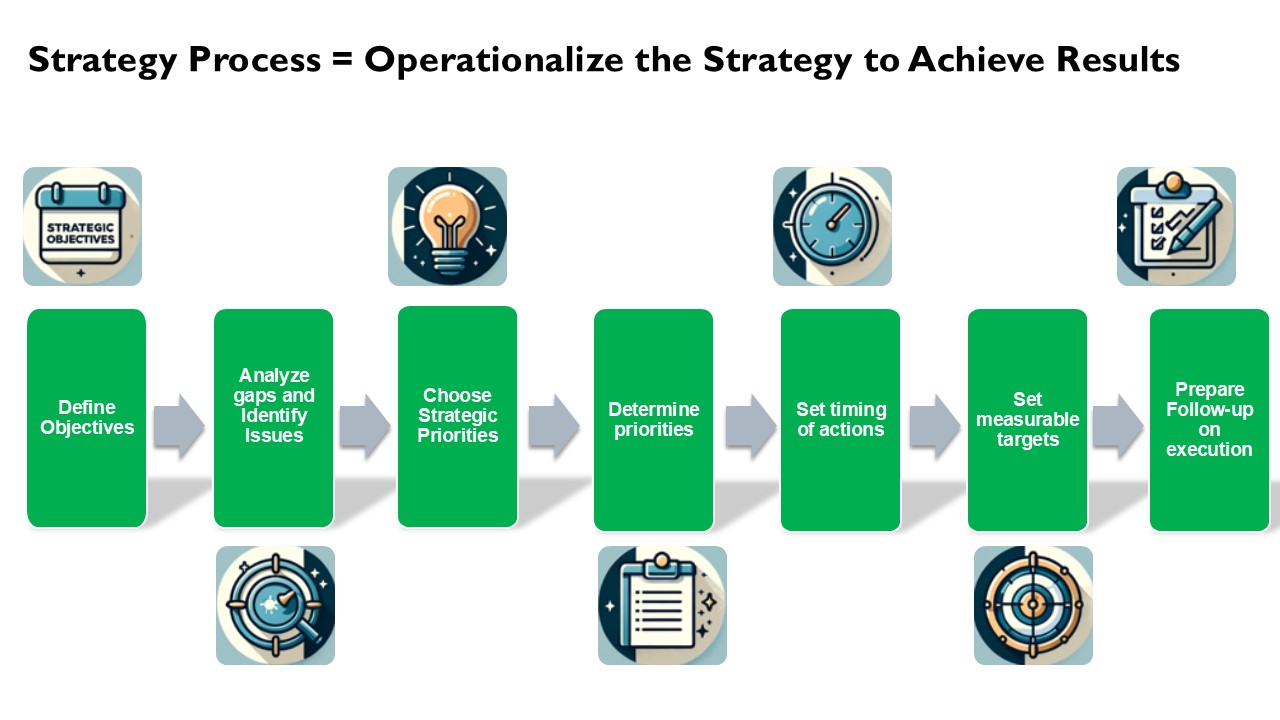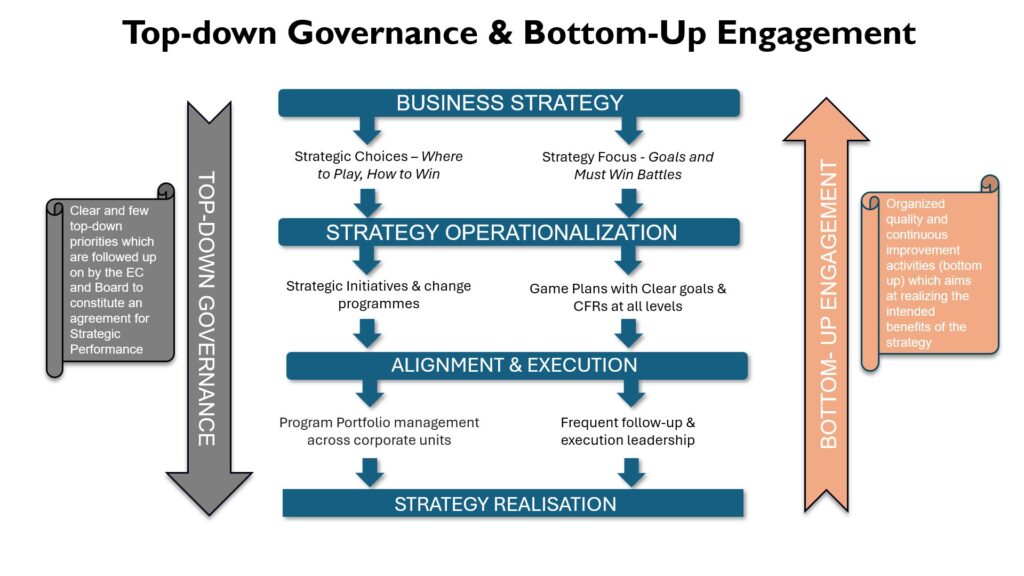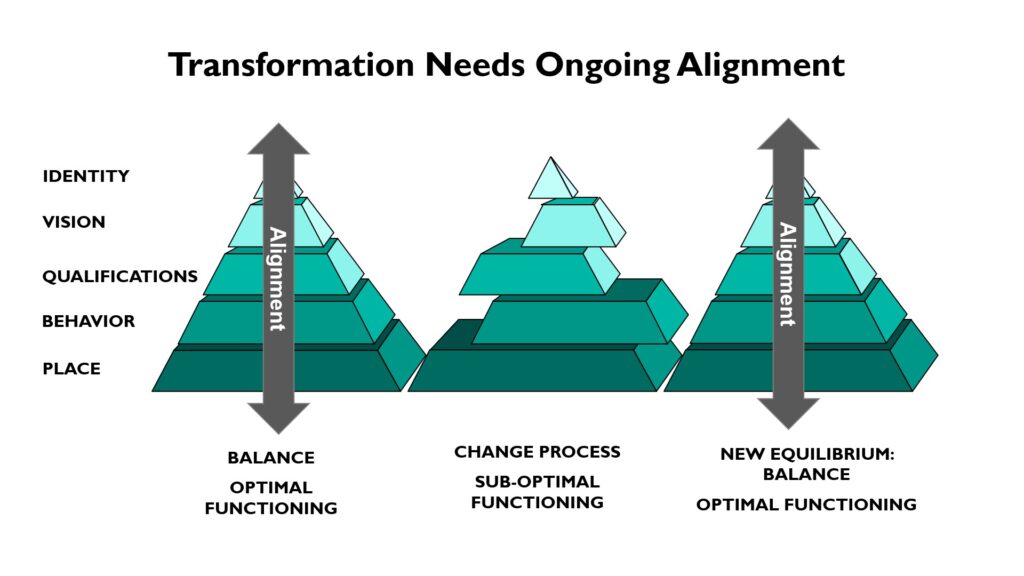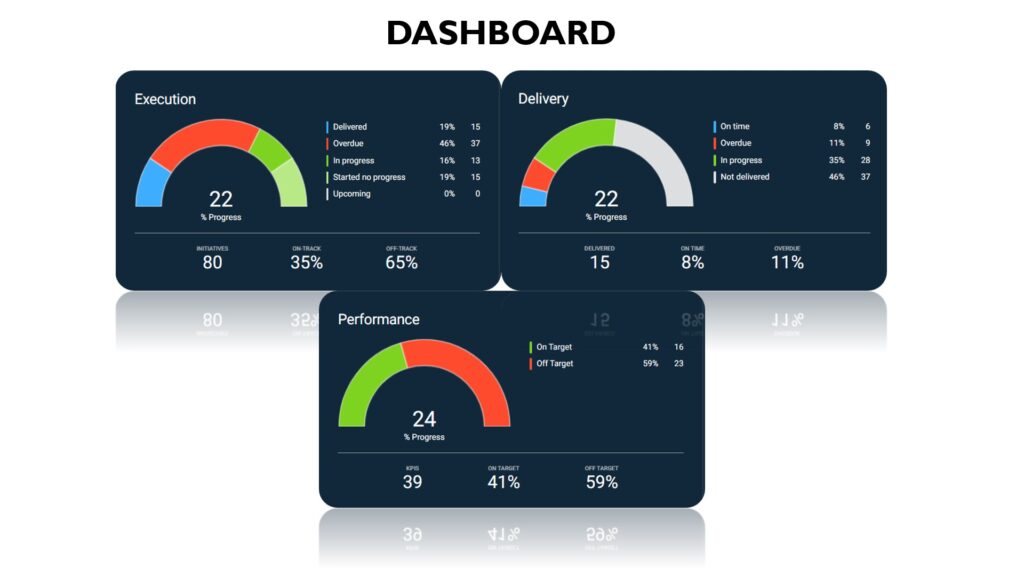Digital Execution

The Appleton Greene Corporate Training Program (CTP) for Digital Execution is provided by Mr. Delécluse Certified Learning Provider (CLP). Program Specifications: Monthly cost USD$2,500.00; Monthly Workshops 6 hours; Monthly Support 4 hours; Program Duration 12 months; Program orders subject to ongoing availability.

Personal Profile
Embarking on a career defined by strategic leadership, innovation, and a profound understanding of the symbiotic relationship between technology and business, Mr. Delécluse stands as a seasoned professional with a wealth of experience and a commitment to excellence.
Education and Early Career:
Mr. Delécluse lays the foundation of his expertise with a master’s degree in finance and accounting and a bachelor’s in law in France. This academic journey is complemented by a Master of Business Administration in International Business from the prestigious New York University. With this robust educational background, Mr. Delécluse entered the professional arena as a Management Consultant at Accenture, dedicating a decade to the Financial Industry.
During this tenure, Mr. Delécluse played a pivotal role in business process reengineering, emphasizing the strategic integration of information technology to enhance business value.
Chief Information Officer
The next two decades witnessed Mr. Delécluse taking on the mantle of Chief Information Officer, leaving an indelible mark in the manufacturing, distribution, and services industries. Here, Mr. Delécluse led the charge in defining and executing strategies where the use of information and technology became central to business transformation. This phase of Mr. Delécluse career was characterized by an unwavering commitment to navigating the evolving landscape of technology, ensuring it became a catalyst for organizational success.
Mr. Delécluse Impactful Journey
From reengineering business processes to defining and executing transformative strategies, Mr. Delécluse has been instrumental in driving organizational success.
1. Deployment of a New Operating Model (FMCG Manufacturing):
Mr. Delécluse spearheaded the transition from decentralized systems, leading a strategic shift that harmonized processes and data across ten countries and twenty factories. His leadership, utilizing ERP systems and in-house developments, ensured a swift, efficient transition with a focus on future adaptability. This achievement underscores Patrice DELECLUSE instrumental role in streamlining operations and preparing the organization for evolving business landscapes.
2. Restructuring of France Business Unit (Financial Services):
Faced with substantial losses, Mr. Delécluse implemented a stringent action plan, defining a new operational strategy and change management plan. His decisive leadership in executing the restructuring program within tight deadlines, under legal constraints, underscored his critical role in ensuring the long-term continuity of operations and strengthening the quality of the client portfolio.
3. Strategic Front-Office Migration (Business Travel Company):
Mr. Delécluse played a pivotal role in executing the migration of the entire agency distribution network and implementing a new operational support system within nine months. His leadership in this unprecedented operation, considering significant external growth, ensured the project’s success. The migration resulted in cost optimization, enhanced booking features, and improved customer response times, showcasing Patrice DELECLUSE critical impact.
4. Process-Oriented Organization Implementation (Professional Services Organization):
Addressing the need for improved performance, Mr. Delécluse championed a process-oriented approach that defined clear and measurable performance indicators. His leadership united various organizational poles and motivated department employees by aligning their roles with end-user satisfaction. Mr. Delécluse played a key role in enhancing the overall performance perception and reality within the Information Technology Division.
5. Business Continuity and IT Security Plan (Professional Services Organization):
Recognizing the lack of investment in information system security, Mr. Delécluse led substantial efforts across business and the Information Systems Department. His leadership resulted in a significant enhancement of information system security and a transformative shift in the mindset of the firm’s employees, highlighting his critical contributions to business continuity and IT security planning.
Gartner’s Vice-President and Executive Partner
Building on this foundation, Mr. Delécluse transitioned to Gartner, assuming the roles of Vice-President and Executive Partner for CxOs. In this capacity, Mr. Delécluse became a trusted advisor, coaching senior executives on digital, data, and information technology strategy definition and execution. The wealth of insights gained during this tenure positioned Mr. Delécluse as a thought leader in the dynamic realm of technology-driven strategies.
Independent Consulting and Learning Provider
Presently, Mr. Delécluse operates as an independent consultant and learning provider. This phase of Mr. Delécluse career reflects a commitment to assisting company leaders and CxO’s in leveraging information technologies for optimized performance. Mr. Delécluse is not just a consultant; he is a partner in navigating the complexities of the digital landscape. In his current role he had the opportunity to work extensively in the Strategy execution field and focus on the Crucial Role of Strategy Definition in Achieving Execution Success.
A Credo That Guides
At the core of Mr. Delécluse approach is a powerful credo: “the value of technology is on the usage, the devil is in the execution, culture eats strategy at breakfast.” This philosophy underscores the belief that successful technology implementation goes beyond strategy; it requires meticulous preparation and execution and a cultural alignment within the organization.
Conclusion
In the dynamic landscape where technology evolves at an unprecedented pace, Mr. Delécluse emerges not just as a professional but as a visionary leader. With a career spanning consulting giants, executive roles, and independent endeavors, Mr. Delécluse exemplifies the ability to navigate change, foster innovation, and lead organizations into a future where technology is not just a tool but a strategic enabler.
As you explore Mr. Delécluse professional journey, you’ll discover a commitment to excellence, a passion for transformative leadership, and a keen understanding of the intricate dance between culture, strategy, and execution in the realm of information technology. Mr. Delécluse is not just a practitioner of technology; he is a guide shaping the future of organizations in the digital era.
To request further information about Mr. Delécluse through Appleton Greene, please Click Here.
(CLP) Programs
Appleton Greene corporate training programs are all process-driven. They are used as vehicles to implement tangible business processes within clients’ organizations, together with training, support and facilitation during the use of these processes. Corporate training programs are therefore implemented over a sustainable period of time, that is to say, between 1 year (incorporating 12 monthly workshops), and 4 years (incorporating 48 monthly workshops). Your program information guide will specify how long each program takes to complete. Each monthly workshop takes 6 hours to implement and can be undertaken either on the client’s premises, an Appleton Greene serviced office, or online via the internet. This enables clients to implement each part of their business process, before moving onto the next stage of the program and enables employees to plan their study time around their current work commitments. The result is far greater program benefit, over a more sustainable period of time and a significantly improved return on investment.
Appleton Greene uses standard and bespoke corporate training programs as vessels to transfer business process improvement knowledge into the heart of our clients’ organizations. Each individual program focuses upon the implementation of a specific business process, which enables clients to easily quantify their return on investment. There are hundreds of established Appleton Greene corporate training products now available to clients within customer services, e-business, finance, globalization, human resources, information technology, legal, management, marketing and production. It does not matter whether a client’s employees are located within one office, or an unlimited number of international offices, we can still bring them together to learn and implement specific business processes collectively. Our approach to global localization enables us to provide clients with a truly international service with that all important personal touch. Appleton Greene corporate training programs can be provided virtually or locally and they are all unique in that they individually focus upon a specific business function. All (CLP) programs are implemented over a sustainable period of time, usually between 1-4 years, incorporating 12-48 monthly workshops and professional support is consistently provided during this time by qualified learning providers and where appropriate, by Accredited Consultants.
Executive summary
Digital Execution
History
The evolution of digital technology has reshaped the business landscape, compelling organizations across industries to embark on a journey of digital transformation. This transformation encompasses the rapid emergence and convergence of various technologies, from Social, Mobile, Analytics, and Cloud (SMAC) to newer advancements like Additive Manufacturing, Blockchain, Internet of Things (IoT), Intelligent Robots, and Autonomous Vehicles. This technological revolution has blurred the traditional boundaries between the physical and virtual worlds, giving rise to new digital-native companies and pushing data to the forefront of attention.
In this context, the formulation and execution of a digital strategy have become imperative for organizational success. A digital transformation strategy serves as an action plan for enterprises to thrive in the digital era, enabling them to meet evolving consumer demands, compete with innovative business models, and harness the power of emerging technologies. However, the pace of technological change in the digital world surpasses that of traditional enterprises, necessitating a shift in operating models and strategic cycles.
Key domains impacted by digital transformation include client experience, innovation management, operating models, corporate culture, and ecosystem partnerships. The scope and impact of transformation vary across organizations, depending on factors such as technology maturity, cultural acceptance, and regulatory environment. While some organizations may focus on digital optimization to enhance customer experience and productivity, others may pursue full-blown digital transformation, encompassing new product propositions and business models.
A successful digital strategy execution requires organizations to cultivate digital dexterity within their workforce, ensuring employees have the skills and mindset to leverage digital technologies effectively. However, despite the critical importance of digital strategy execution, many organizations struggle to achieve their digital objectives. Traditional methods of strategy implementation have proven inadequate in the digital era, characterized by outdated practices and a lack of adaptability to changing circumstances.
Challenges in digital strategy execution stem from inadequate follow-up and communication at the leadership level, a lack of alignment among middle management, and ineffective communication of digital strategy objectives to the workforce. Moreover, organizations often fail to integrate digital strategy with budgeting, align employee incentives with digital goals, or track digital performance metrics effectively. The absence of dedicated digital strategy execution management systems further compounds these challenges, hindering organizations’ ability to monitor progress and make timely adjustments to their strategies.
Despite the recognition of these challenges, digital strategy execution remains an overlooked discipline in leadership education programs, with the majority of organizations lacking formal methodologies for executing their digital strategies. The historical influence of traditional strategy models has contributed to the persistence of outdated practices, underscoring the need for agile and adaptive approaches to digital strategy execution in today’s volatile business environment.
To succeed in the digital age, organizations must embrace professional approaches to digital strategy execution, including strengthening strategic governance, engaging employees, and dedicating resources to the administration of the digital strategy process. By adopting agile practices and leveraging digital transformation, organizations can navigate the complexities of the digital landscape and drive sustainable growth in the digital economy.

Current Position
Organizations confront pervasive challenges in executing strategies, with a specific emphasis on the complexities of digital strategy implementation. In today’s dynamic business landscape, organizations grapple with multifaceted pain points that can impede the successful execution of their strategic initiatives.
1. Fragmented Processes and Siloed Approaches:
One of the key challenges is the presence of fragmented processes within organizations. Siloed approaches hinder seamless collaboration and communication across departments, leading to disjointed efforts that may not align with the overarching digital strategy. This lack of cohesion can result in suboptimal utilization of resources and missed opportunities for synergy.
2. Inadequate Collaboration and Communication:
Effective strategy execution relies on robust collaboration and communication. Many organizations struggle with fostering a culture of openness and information sharing. This challenge is accentuated in the context of digital strategies, where cross-functional collaboration is essential. Siloed information and communication gaps can hinder the alignment of actions with the overarching digital goals.
3. Dynamic Nature of Digital Transformations:
Digital strategies often involve transformative initiatives with a rapidly evolving technological landscape. Organizations find it challenging to adapt to the dynamic nature of digital transformations. Rapid advancements in technology, coupled with emerging trends, necessitate agile responses. Traditional, rigid execution approaches may falter in addressing the fluid demands of digital strategy implementation.
4. Ensuring Alignment with Strategic Objectives:
Digital strategies are typically aligned with broader organizational objectives. However, ensuring that every action and initiative resonates with these strategic goals is a persistent challenge. Misalignment between day-to-day operations and overarching digital strategies can lead to wasted resources and missed opportunities for innovation and growth.
5. Measurement and Evaluation:
Measuring the success of digital strategy execution is a complex task. Organizations often struggle with defining and tracking relevant Key Performance Indicators (KPIs) that accurately reflect progress. The lack of a comprehensive measurement framework can make it difficult to assess the impact of digital initiatives and adjust strategies accordingly.
6. Navigating Regulatory and Compliance Landscape:
In the digital realm, organizations must navigate a complex regulatory and compliance landscape. Adhering to data protection laws, cybersecurity standards, and other regulations adds an additional layer of complexity to strategy execution. Failure to navigate these intricacies can result in legal repercussions and reputational damage.
7. Technology Integration Challenges:
The implementation of digital strategies frequently involves integrating new technologies with existing systems. Legacy infrastructure, resistance to change, and compatibility issues can pose significant challenges. Seamless integration is crucial to realizing the full potential of digital initiatives, and organizations need strategies to overcome these technological hurdles.
8. Talent and Skill Gaps:
The successful execution of digital strategies requires a workforce equipped with the right skills and expertise. Organizations often face challenges in hiring, retaining, and upskilling talent to meet the demands of digital transformations. Bridging the skill gaps is essential for executing strategies that leverage emerging technologies effectively.
In Conclusion:
This corporate training program addresses these pain points head-on by providing a platform designed to enhance collaboration, communication, and transparency in strategy execution. By leveraging this training capabilities, organizations can navigate the complexities of digital strategy implementation, foster alignment across teams, and achieve successful outcomes in today’s fast-paced and digitally-driven business environment.

Future Outlook
Digital Transformation and Strategy:
In the context of the modern business landscape, the importance of strategy definition becomes even more pronounced, especially when considering digital strategies. As organizations increasingly embark on digital transformation journeys, the role of a clear and well-defined digital strategy becomes a strategic imperative.
Strategic Digitization:
Digital strategy defines how organizations leverage technology to achieve their business objectives. It delineates the roadmap for integrating digital technologies into various facets of the business, from operations to customer engagement. This strategic digitization is vital for staying competitive in an era where technological advancements reshape industries.
Data-Driven Decision-Making:
Digital strategies often revolve around data – its collection, analysis, and utilization. A comprehensive strategy defines how an organization will harness the power of data for decision-making. This involves not only implementing data analytics tools but also fostering a data-driven culture where insights gleaned from data inform strategic choices and execution plans.
Agility in the Digital Realm:
Digital landscapes are inherently dynamic, with technological advancements and market shifts occurring at a rapid pace. A well-defined digital strategy provides the agility necessary to navigate this ever-changing terrain. It outlines how the organization will adopt emerging technologies, respond to market trends, and pivot when needed, ensuring that digital execution stays relevant and effective.
Digital Customer Experience:
For many organizations, digital strategy is intrinsically tied to enhancing the customer experience. This involves crafting a strategy that defines how digital channels will be used to engage customers, streamline processes, and deliver personalized experiences. The strategy serves as a compass for aligning digital initiatives with the goal of elevating customer satisfaction and loyalty.
Integration of Emerging Technologies:
Emerging technologies such as artificial intelligence, blockchain, and the Internet of Things are integral to many digital strategies. A robust strategy defines how these technologies will be integrated into the organization’s operations, products, or services. It ensures that the adoption of these technologies aligns with broader business goals and contributes meaningfully to execution.
Cybersecurity and Risk Mitigation:
As organizations become increasingly digitized, the importance of cybersecurity cannot be overstated. A digital strategy includes provisions for ensuring the security of digital assets and mitigating cyber risks. This is essential for safeguarding not only sensitive data but also the overall integrity of the organization’s digital ecosystem.
Organizational Culture and Digital Adoption:
Digital strategies extend beyond technology to encompass the organizational culture. A well-crafted strategy defines how the organization will foster a culture of innovation, collaboration, and digital literacy. It addresses the human side of digital transformation, ensuring that employees are empowered and motivated to embrace digital tools and methodologies.
Measuring Digital Success:
In the digital realm, the definition of success requires new metrics and KPIs. A digital strategy establishes these measures, outlining how success will be quantified in the digital domain. This includes tracking digital engagement, conversion rates, and the impact of digital initiatives on overall business performance.
In conclusion, the pivotal role of strategy definition in achieving successful execution extends seamlessly into the realm of digital transformation. A well-defined digital strategy is the cornerstone for organizations seeking to navigate the complexities of a rapidly evolving technological landscape. It provides the roadmap for leveraging digital technologies, fostering agility, enhancing customer experiences, and ensuring the holistic integration of digital initiatives into the fabric of the organization. As the digital era continues to unfold, the importance of a clear and adaptive digital strategy will remain paramount for organizations striving to thrive in the digital age.
Curriculum
Digital Execution – Part 1- Year 1
- Part 1 Month 1 Digital Introduction
- Part 1 Month 2 Goal Setting
- Part 1 Month 3 Strategic Assessment
- Part 1 Month 4 AI in Strategy
- Part 1 Month 5 Strategic Priorities
- Part 1 Month 6 Digital Initiatives
- Part 1 Month 7 Timelines & Accountability
- Part 1 Month 8 Strategy Objectives
- Part 1 Month 9 Legal & Ethical
- Part 1 Month 10 Strategy Presentation
- Part 1 Month 11 Monitoring Platform
- Part 1 Month 12 Implementation & Review
Program Objectives
The following list represents the Key Program Objectives (KPO) for the Appleton Greene Digital Execution corporate training program.
Digital Execution – Part 1- Year 1
- Part 1 Month 1 Digital Introduction – Digital Introduction: Introduction to Digital Strategy / Understanding Digital Transformation: In the ever-evolving landscape of business, this session serves as the gateway to a profound exploration of digital strategy. Participants embark on a journey to comprehend the foundational principles that underpin digital strategy and its role in the dynamic business environment. Through meticulously crafted modules, the session instills a comprehensive understanding of digital strategy, emphasizing its pivotal significance. Real-world case studies provide insights into successful implementations, offering valuable lessons for navigating the complexities of the digital era. The session extends beyond theory, delving into the transformative concept of digital evolution, examining its far-reaching impact across diverse industries. Key drivers of digital transformation take center stage, with participants gaining insights from impactful transformations witnessed globally. Armed with this knowledge, participants are poised to navigate the intricate web of digital dynamics effectively. As participants delve into the session, they not only grasp the theoretical foundations of digital strategy but also cultivate a strategic mindset essential for success in today’s business landscape. The interactive nature of the session encourages active participation, fostering a dynamic learning environment where participants can engage with the content and each other. By the end of the session, participants will not only understand the theoretical underpinnings of digital strategy but will also be equipped with practical insights, setting the stage for a transformative journey through the subsequent sessions. This session acts as the compass, providing participants with a directional understanding of the digital terrain they are about to navigate. It lays the groundwork for a comprehensive exploration of digital strategy, ensuring that participants are not only informed but also inspired to embrace the challenges and opportunities presented by the digital revolution. The Digital Introduction serves as a solid foundation upon which participants will build their knowledge and skills, preparing them for the intricacies of strategic decision-making and execution in the digital era.
- Part 1 Month 2 Goal Setting – Goal Setting: Fundamentals of Goal Setting for Digital Strategy. As organizations navigate the digital landscape, setting clear and achievable goals becomes paramount. This session is a deep dive into the foundational aspects of defining objectives within the digital strategy framework. Participants gain a nuanced understanding of aligning digital strategy with overarching business goals, ensuring a symbiotic relationship between digital initiatives and organizational objectives. The session begins with an exploration of the fundamental principles of goal setting in the digital context. Participants learn how to articulate clear and measurable objectives that resonate with the broader organizational mission. Understanding the critical role of goal setting in driving successful digital strategies, participants delve into the intricacies of goal alignment, ensuring that digital initiatives contribute meaningfully to the overall business strategy. Practical exercises elevate the learning experience, offering participants hands-on opportunities to define the desired state for a hypothetical organization. This practical approach allows participants to apply theoretical concepts in a simulated real-world scenario, bridging the gap between theory and practice. By engaging in goal-setting exercises, participants not only grasp the theoretical frameworks but also cultivate the practical skills required for effective digital strategy implementation. Moreover, the session explores the concept of a seven-session digital transformation process, emphasizing the significance of the desired state and guiding participants in setting ambitions for digital transformation. Through guided exercises, participants learn to navigate the complexities of digital transformation, ensuring that their strategies are forward-looking, adaptable, and aligned with organizational goals. By the end of the session, participants emerge with a holistic understanding of goal setting in the digital strategy landscape. They are equipped with the knowledge to define clear objectives, align digital initiatives with overarching business goals, and measure the impact of digital strategies effectively. This session serves as a cornerstone, providing participants with the fundamental skills and insights needed to navigate the goal-setting aspect of digital strategy with confidence and competence.
- Part 1 Month 3 Strategic Assessment – Strategic Assessment: Digital Strategic Gap Assessment. Embarking on a digital transformation journey requires a clear understanding of the current landscape and potential obstacles. The “Digital Strategic Gap Assessment” session is designed to equip participants with essential skills in Gap Analysis and Strategic Gap Assessment within the context of digital transformation. The session commences with a comprehensive exploration of Gap Analysis, a fundamental tool for assessing the current state of an organization. Participants delve into the intricacies of analyzing existing processes, technologies, and capabilities to identify gaps that may impede the smooth progression toward digital objectives. Understanding the significance of Gap Analysis, participants learn to pinpoint critical issues and challenges that need to be addressed for successful digital transformation. Building on this foundation, the session extends into the Strategic Gap Assessment process, guiding participants in mapping the gap between the current and desired states. This phase involves a strategic examination of where the organization stands and where it aspires to be in the digital landscape. Participants gain valuable insights into creating a roadmap for bridging the identified gaps, ensuring a targeted and strategic approach to digital transformation. To enhance the practical application of acquired skills, the session incorporates a group activity involving a SWOT analysis for a real-life organization. This hands-on exercise allows participants to apply Gap Analysis and Strategic Gap Assessment tools to a concrete business scenario. By engaging in this group activity, participants not only reinforce their theoretical understanding but also develop the confidence to adeptly apply these learnings in professional settings. By the conclusion of the session, participants emerge with a robust toolkit for strategic navigation in the digital realm. They are equipped to assess an organization’s current state, identify obstacles to successful digital transformation, and strategically plan the steps needed to bridge the gap. This session serves as a crucial building block, empowering participants to navigate the complexities of digital strategy with precision and strategic foresight.
- Part 1 Month 4 AI in Strategy – AI in Strategy: Importance of Artificial Intelligence in a Digital Strategy. In the ever-evolving landscape of digital strategy, artificial intelligence (AI) emerges as a transformative force, reshaping the way organizations operate and strategize. The “Importance of Artificial Intelligence in a Digital Strategy” session is meticulously tailored to empower participants with a comprehensive understanding of crucial aspects related to AI within the digital strategy definition process. The session kicks off with an exploration of the profound impact of AI on digital strategies. Participants delve into the intricacies of integrating AI into the fabric of digital strategies, understanding how AI can be harnessed to drive innovation, optimize processes, and unlock new possibilities. Real-world case studies and examples showcase successful AI integrations, providing participants with tangible insights into the transformative power of this technology. A significant focus of the session is dedicated to harnessing data and analytics for AI-driven insights. Participants gain a nuanced understanding of how data, when strategically analyzed and leveraged through AI, can provide invaluable insights for informed decision-making. Practical exercises and case studies further illuminate the potential of AI in unlocking hidden patterns, predicting trends, and making data-driven decisions that propel digital strategies forward. Ethical considerations take the spotlight in the latter part of the session. As AI introduces new dimensions of decision-making and automation, participants navigate the complex terrain of ethical considerations. The session guides participants through the maze of regulatory standards and responsible AI practices, ensuring that the integration of AI into digital strategies aligns with ethical principles and meets regulatory requirements. By the session’s conclusion, participants are poised to leverage AI effectively in their digital strategies. They leave with a comprehensive understanding of how AI can enhance decision-making processes, elevate customer experiences, and contribute to the overall success of digital strategies. Importantly, participants are equipped with the knowledge and awareness needed to navigate the ethical and regulatory dimensions of AI, ensuring that its integration aligns with responsible and sustainable business practices. This session serves as a pivotal exploration into the transformative potential of AI within the digital strategy landscape.
- Part 1 Month 5 Strategic Priorities – Strategic Priorities: Identifying Digital Strategic Priorities. Within the tapestry of digital transformation, strategic frameworks emerge as guiding beacons, illuminating the path to success. The “Identifying Digital Strategic Priorities” session within the corporate training program is designed to provide participants with an in-depth exploration of strategic frameworks and their pivotal significance in the dynamic digital realm. The session unfolds with a comprehensive examination of strategic frameworks and their role in shaping successful digital transformations. Participants gain insights into the adaptability and resilience fostered by strategic frameworks, understanding how these frameworks serve as essential tools in navigating the complexities of the digital landscape. A key highlight of the session is the hands-on exploration of adapting existing frameworks for effective digital transformation. Through group exercises, participants engage in practical experiences, gaining a nuanced understanding of how traditional strategy frameworks can be tailored to address the unique challenges presented by the digital era. This practical approach ensures that participants not only grasp theoretical concepts but also acquire the skills needed to apply these frameworks in real-world scenarios. The session further delves into the formulation of pillars and critical success factors, providing participants with a strategic roadmap to determine priorities based on Gap analysis. By understanding the gap between the current state and the desired state, participants are empowered to identify key pillars that will support successful digital transformation initiatives. Critical success factors become the compass guiding participants toward the areas that require focused attention and strategic emphasis. In essence, the “Identifying Digital Strategic Priorities” session goes beyond theoretical discussions. It equips participants with practical tools and experiences, ensuring that they are well-prepared to navigate the complexities of digital transformation. Participants leave with a profound understanding of how to leverage strategic frameworks, formulate pillars, and identify critical success factors that will drive successful digital strategies in their respective organizational contexts. This session serves as a pivotal exploration into the strategic intricacies of digital transformation, arming participants with the knowledge and skills needed for strategic success in the digital era.
- Part 1 Month 6 Digital Initiatives – Digital Initiatives: Defining Major Digital Initiatives. In the intricate landscape of digital strategy, the ability to identify and define major digital initiatives is akin to charting a course for organizational growth and success. The “Defining Major Digital Initiatives” session within the corporate training program is a focused guide, empowering participants in the crucial process of determining top-down initiatives for strategic planning and execution. This session serves as a strategic compass, guiding participants on a journey to identify and articulate 3-5 major digital strategic initiatives that will propel their organizations forward. Through a structured and insightful approach, participants delve into the intricacies of breaking down these initiatives into actionable plans, ensuring that each component aligns seamlessly with overarching organizational goals. A key emphasis of the session is to equip participants with the skills and knowledge needed to strategically plan and execute these identified initiatives. Understanding that successful execution is contingent on meticulous planning and effective implementation, the session imparts practical insights into translating strategic vision into actionable steps. Through real-world case studies and interactive exercises, participants gain a profound understanding of how major digital initiatives can contribute to organizational success. The session goes beyond theoretical discussions, providing tangible tools and frameworks that participants can apply within their unique organizational contexts. By the session’s conclusion, participants are not only armed with a strategic roadmap for defining major digital initiatives but are also equipped with the practical skills needed to navigate the complexities of execution. This session is a transformative experience, ensuring that participants leave with a heightened ability to contribute significantly to their organizations’ success by strategically planning and executing digital initiatives that drive growth and innovation.
- Part 1 Month 7 Timelines & Accountability – Timelines & Accountability: Setting Timelines and Accountability for Digital Strategic Initiatives: In the dynamic landscape of digital strategy, where success hinges on the seamless translation of strategy into actionable initiatives, the “Setting Timelines and Accountability for Digital Strategic Initiatives” session emerges as a linchpin for effective execution. This session within the corporate training program provides participants with a comprehensive understanding of the critical elements involved in building a digital team and infrastructure, ensuring the judicious allocation of budgets and resources. The session meticulously unravels the intricacies of setting clear timelines and accountability mechanisms, recognizing these components as foundational pillars for successful strategy execution. Participants delve into the nuances of assembling the right digital team, selecting appropriate digital tools, and allocating budgets and resources effectively. Real-world case studies and best practices guide participants through the complexities of establishing and managing a proficient digital team. A key focus of the session is to empower participants to navigate the challenges associated with execution timelines. Understanding that time is often a critical factor in the success of digital initiatives, participants gain insights into developing realistic timelines that align with organizational objectives. Moreover, the session provides practical tools and frameworks for holding teams accountable, ensuring that every member understands their role in achieving strategic goals. By the conclusion of the session, participants are not only equipped with theoretical knowledge but are also armed with practical skills to execute strategic plans within defined timeframes. The emphasis on alignment with organizational values ensures that the impact of digital strategic initiatives goes beyond mere execution, contributing meaningfully to the overall success and growth of the organization. This session is a transformative experience, preparing participants to navigate the intricacies of digital strategy execution with precision and effectiveness.
- Part 1 Month 8 Strategy Objectives – Strategy Objectives: Setting Digital Strategy Objectives and KPIs. In the landscape of digital transformation, where the clarity of objectives and the ability to measure success are fundamental to progress, the “Setting Digital Strategy Objectives and KPIs” session takes center stage. This session is meticulously designed to empower participants with the knowledge and skills necessary for defining goals and measuring success within the dynamic context of digital transformation. The session initiates participants into the intricacies of setting SMART objectives, emphasizing the importance of specificity, measurability, achievability, relevance, and time-bound criteria. Understanding that well-defined objectives serve as the guiding force for digital initiatives, participants explore the art of aligning digital goals with broader organizational objectives. Real-world case studies and practical insights illuminate the importance of this alignment, showcasing how it contributes to the overall success of digital strategies. A significant aspect of the session involves delving into the world of Key Performance Indicators (KPIs), recognizing them as vital metrics for assessing the impact of digital initiatives. Through group exercises, participants actively engage in the identification of relevant KPIs for various digital transformation scenarios. This hands-on approach ensures that participants not only grasp theoretical concepts but also acquire practical skills in navigating the complex landscape of performance measurement in the digital realm. By the conclusion of the session, participants are well-prepared to define goals and KPIs effectively, contributing to the success of digital transformation initiatives and the overall growth of their organizations. This session serves as a beacon, guiding participants through the intricacies of setting objectives and measuring success in the ever-evolving landscape of digital strategy.
- Part 1 Month 9 Legal & Ethical – Legal & Ethical: Legal and Ethical Considerations in a Digital World. In the intricate landscape of the digital world, where data flows freely and technology evolves rapidly, understanding the legal and ethical dimensions is paramount. The “Legal and Ethical Considerations in a Digital World” session is a comprehensive guide designed to equip participants with the necessary knowledge and skills to navigate this complex terrain. The session initiates with an exploration of crucial topics, including data privacy and compliance, shedding light on the intricacies of safeguarding sensitive information in the digital realm. Participants gain insights into the evolving regulatory landscape, understanding the implications of non-compliance and the measures necessary to ensure data protection. Intellectual property rights take center stage as participants delve into copyright considerations within the digital domain. The session elucidates the nuances of protecting and respecting intellectual property, providing participants with a solid foundation for ethical business practices. Real-world case studies and examples showcase the consequences of intellectual property violations, emphasizing the importance of adherence to ethical standards. Ethical considerations in marketing practices form a significant part of the session, guiding participants through the intricacies of responsible marketing in the digital age. Understanding the impact of digital marketing on consumer perceptions and behavior, participants learn to navigate the fine line between promotion and ethical conduct. By the session’s conclusion, participants are well-versed in the legal and ethical considerations that define the digital landscape. Armed with this knowledge, they are prepared to ensure compliance, respect intellectual property rights, and uphold ethical standards, contributing to the creation of a responsible and trustworthy digital business environment. This session serves as a cornerstone for professionals navigating the digital realm, fostering ethical conduct and legal adherence in every digital endeavor.
- Part 1 Month 10 Strategy Presentation – Strategy Presentation: Digital Strategy Presentation and Implementation: The pinnacle of the digital strategy journey, this session marks the transition from conceptualization to execution. Participants engage in a structured process of presenting and finalizing their digital strategies. Through collaborative group settings, individuals showcase their strategies, fostering an environment of constructive feedback and enriching discussions. The primary goal is to elevate the quality of strategies through diverse perspectives and insights. The session is designed to empower participants with the essential skills required to compile comprehensive digital strategy documents. It goes beyond theoretical knowledge, providing practical tools and methodologies. Participants learn how to articulate their strategies in a clear, compelling manner that resonates with diverse stakeholders. Communication skills are honed, ensuring that the narrative effectively communicates the strategic vision. A key focus of the session is stakeholder presentations. Participants delve into the art of presenting digital strategies to varied audiences, tailoring their approach to different stakeholders. Whether addressing executives, teams, or external partners, participants gain the ability to tailor their message for maximum impact. Implementation planning is a crucial facet covered in this session. Participants are guided through the process of translating strategy into actionable plans. This involves breaking down overarching strategies into detailed action items, setting realistic timelines, and allocating resources effectively. The emphasis is on practicality and feasibility, ensuring that the presented strategies can be seamlessly translated into operational initiatives. Moreover, the session instills a holistic view of strategy implementation. It covers aspects beyond the immediate action items, delving into potential challenges, risk mitigation strategies, and continuous improvement mechanisms. Participants are equipped not only to kickstart their strategies but also to navigate the complexities of the execution phase. The collaborative nature of the session encourages knowledge sharing and peer learning. Participants benefit from the collective wisdom of diverse perspectives, enriching their understanding of digital strategy presentation and implementation. The skills acquired in this session extend beyond the classroom, providing a lasting impact on the participants’ ability to drive successful digital initiatives within their organizations. In summary, the Digital Strategy Presentation and Implementation session serves as the capstone experience, integrating theoretical knowledge with practical skills. It empowers participants to confidently present their digital strategies, navigate implementation challenges, and ultimately contribute to the success of their organizations in the rapidly evolving digital landscape.”
- Part 1 Month 11 Monitoring Platform – Monitoring Platform: Creating a Digital Monitoring Platform. In the ever-evolving landscape of digital strategy implementation, the ability to monitor, analyze, and adapt is a cornerstone of success. The session “Creating a Digital Monitoring Platform” is meticulously crafted to empower participants with the knowledge and skills necessary to navigate the complexities of effective digital strategy implementation. The session commences with a deep dive into the key aspects of setting up monitoring systems. Participants gain insights into selecting the right tools that align with organizational objectives and digital strategy goals. Understanding the diverse array of monitoring tools available in the market, participants learn to make informed decisions that cater to the unique needs of their organizations. Leveraging data for informed decision-making takes center stage as the session progresses. Participants delve into the intricacies of transforming raw data into actionable insights, understanding the role of data in evaluating strategy effectiveness. Practical exercises provide hands-on experience, allowing participants to work with real-world datasets and make informed decisions based on digital performance metrics. Addressing common challenges in digital strategy implementation is a focal point of the session. Through problem-solving strategies and best practices, participants learn to navigate obstacles, ensuring a resilient and adaptive approach to digital strategy. Real-world case studies and scenarios offer valuable lessons, allowing participants to apply problem-solving methodologies in professional contexts. By the session’s conclusion, participants are well-equipped to implement, monitor, and adapt digital strategies effectively. They become proficient in utilizing monitoring platforms, making data-driven decisions, and overcoming challenges with strategic problem-solving. This session stands as a pivotal guide for professionals seeking to enhance their organizations’ digital strategy implementation capabilities, ultimately contributing to sustained organizational success in the dynamic digital landscape.
- Part 1 Month 12 Implementation & Review – Implementation & Review: Digital Strategy Implementation / Reviewing and Adjusting: In the dynamic landscape of digital strategy, the journey from conceptualization to implementation is crucial, requiring a continuous review and adjustment process. The session “Digital Strategy Implementation / Reviewing and Adjusting” is strategically designed to equip participants with the knowledge and skills essential for navigating the complexities of digital strategy implementation. The session initiates with a comprehensive exploration of the establishment of structured review processes. Participants delve into the nuances of designing systematic reviews that allow for a thorough analysis of digital strategy progress. Understanding the importance of periodic review, participants gain insights into the significance of monitoring mechanisms in ensuring ongoing success. Analysis of progress becomes a central focus of the session. Participants learn to dissect key performance indicators (KPIs) and assess their organization’s performance against predefined benchmarks. Practical exercises provide hands-on experience, allowing participants to apply analytical tools and methodologies to real-world digital strategy scenarios. Making necessary adjustments to digital strategies takes center stage as the session progresses. Participants gain a deep understanding of the iterative nature of digital strategy implementation, learning how to adapt strategies in response to changing market dynamics, technological advancements, and organizational shifts. The session emphasizes the role of digital tools in enhancing monitoring and enabling real-time strategy execution. A collaborative group activity provides a practical dimension to the learning experience. Participants engage in creating real-time monitoring plans, applying the concepts and tools acquired throughout the session. This hands-on exercise ensures that participants are well-prepared to implement, monitor, and adapt their digital strategies effectively, ensuring their continued alignment with organizational objectives and fostering ongoing success. By the session’s conclusion, participants emerge with a strategic mindset, ready to navigate the intricate journey of digital strategy implementation. They become adept at monitoring, analyzing, and adjusting digital strategies, contributing significantly to organizational objectives in the ever-evolving digital landscape.
Methodology

Digital Execution
Program Planning
Using an integrative methodology, we will employ a tailored approach that incorporates key elements from various frameworks to provide participants with a hands-on understanding of strategy formulation and implementation.
Here’s a breakdown of the exact processes involved:

1. We will begin by facilitating a deep understanding of corporate mission, vision, values and goals, highlighting how these elements interconnect and contribute to the overarching strategy.
2. Next, we will be delving into the core philosophies behind commonly used frameworks such as MBO, BSC, 4DX, OKR, and PCF. Participants will gain insights into the distinct approaches these frameworks offer to strategy formulation and execution.
Image too detailed
3. Participants will then be guided in identifying specific focus areas derived from the corporate strategy. Through interactive discussions, we will encourage participants to explore why certain areas are strategically vital and how they align with the organization’s mission.
4. A dedicated session on goal setting will follow, where participants will learn to break down overarching goals into SMART objectives. Emphasis will be placed on the importance of clarity and precision in goal formulation.
Image too detailed
5. In a collaborative session, participants will map out strategic initiatives for each identified focus area. This exercise will encourage participants to draw connections between initiatives and their corresponding goals, fostering a holistic view of the strategy.
6. We will explore various methodologies for encouraging team alignment, drawing insights from the philosophies of different frameworks. Participants will discuss the importance of shared understanding and commitment to the overall strategy.

7. Real-world case studies showcasing organizations that have successfully utilized different frameworks will be integrated into the program. Through analysis of these case studies, participants will gain practical insights into overcoming challenges in strategy execution.
8. Interactive discussions will be incorporated, providing participants with opportunities to share their experiences and anticipate challenges. This collaborative learning environment will enable cross-pollination of ideas.
9. The adaptive nature of strategy formulation will be emphasized, with discussions on scenarios where organizations might need to shift between frameworks based on evolving internal and external dynamics.

10. The program will conclude by emphasizing the concept of a continuous improvement loop. Participants will be encouraged to revisit and refine their strategic plans regularly, considering feedback, market changes, and internal advancements.

Text without Visual Aids
1. We will begin by facilitating a deep understanding of corporate mission, vision, and goals, highlighting how these elements interconnect and contribute to the overarching strategy.
2. Next, we will be delving into the core philosophies behind commonly used frameworks such as MBO, BSC, 4DX, OKR, and PCF. Participants will gain insights into the distinct approaches these frameworks offer to strategy formulation and execution.
3. Participants will then be guided in identifying specific focus areas derived from the corporate strategy. Through interactive discussions, we will encourage participants to explore why certain areas are strategically vital and how they align with the organization’s mission.
4. A dedicated session on goal setting will follow, where participants will learn to break down overarching goals into SMART objectives. Emphasis will be placed on the importance of clarity and precision in goal formulation.
5. In a collaborative session, participants will map out strategic initiatives for each identified focus area. This exercise will encourage participants to draw connections between initiatives and their corresponding goals, fostering a holistic view of the strategy.
6. We will explore various methodologies for encouraging team alignment, drawing insights from the philosophies of different frameworks. Participants will discuss the importance of shared understanding and commitment to the overall strategy.
7. Real-world case studies showcasing organizations that have successfully utilized different frameworks will be integrated into the program. Through analysis of these case studies, participants will gain practical insights into overcoming challenges in strategy execution.
8. Interactive discussions will be incorporated, providing participants with opportunities to share their experiences and anticipate challenges. This collaborative learning environment will enable cross-pollination of ideas.
9. The adaptive nature of strategy formulation will be emphasized, with discussions on scenarios where organizations might need to shift between frameworks based on evolving internal and external dynamics.
10. The program will conclude by emphasizing the concept of a continuous improvement loop. Participants will be encouraged to revisit and refine their strategic plans regularly, considering feedback, market changes, and internal advancements.
By employing this integrative methodology, participants will gain a nuanced understanding of strategy planning philosophies and develop a strategic mindset that is adaptive, collaborative, and aligned with organizational goals.
Industries
This service is primarily available to the following industry sectors:

Utilities
History
The utilities sector has a long history marked by gradual evolution and occasional disruption. Historically, utilities companies operated in a traditional, regulated environment, providing essential services such as electricity, water, and gas to consumers. These companies relied on centralized infrastructure and manual processes to deliver services to customers. However, with the advent of digital technologies in the late 20th century, the utilities sector began to undergo a transformation. Early digital initiatives focused on improving operational efficiency through automation and digitization of core processes. These efforts laid the foundation for the digitalization of utilities operations, paving the way for more sophisticated digital strategy execution in the years to come.
Current Position
In the current landscape, the utilities sector is in the midst of a digital revolution, driven by technological advancements and changing consumer expectations. Utilities companies are leveraging digital technologies to modernize their infrastructure, enhance service delivery, and improve customer engagement. Key digital initiatives include the deployment of smart meters for real-time monitoring of energy consumption, the implementation of advanced analytics for predictive maintenance, and the adoption of renewable energy sources to meet sustainability goals. Despite these advancements, utilities companies face challenges in effectively executing their digital strategies, including legacy systems integration, cybersecurity threats, and regulatory compliance requirements.
Future Outlook
Looking ahead, the future of the utilities sector will be shaped by continued advancements in digital technologies and evolving market dynamics. The rise of distributed energy resources, such as solar panels and battery storage, will necessitate investments in grid modernization and smart infrastructure to support decentralized energy generation and management. Moreover, the proliferation of Internet-of-Things (IoT) devices and smart home technologies will enable utilities companies to offer new value-added services to customers, such as energy management solutions and demand-response programs. To capitalize on these opportunities, utilities companies must prioritize digital strategy execution and invest in comprehensive corporate training programs focused on digital transformation. By equipping their workforce with the skills and knowledge needed to navigate the digital landscape, utilities companies can position themselves for success in an increasingly digital-driven industry.

Retail And Distribution
History
The retail and distribution sector has undergone significant transformations throughout its history, driven by changing consumer preferences, technological advancements, and market dynamics. Historically, retail and distribution businesses relied on traditional brick-and-mortar stores and physical channels to reach customers. However, with the advent of the internet and e-commerce platforms in the late 20th century, the sector experienced a paradigm shift towards digitalization. Early digital initiatives focused on establishing online storefronts and implementing basic e-commerce functionalities. Over time, digital technologies such as data analytics, mobile apps, and social media platforms have become integral to retail and distribution operations, enabling personalized customer experiences, omnichannel retailing, and supply chain optimization.
Current Position
In the current landscape, the retail and distribution sector is at the forefront of digital strategy execution, driven by the proliferation of digital channels and the rise of e-commerce. Retailers and distributors are leveraging digital technologies to enhance customer engagement, streamline operations, and gain competitive advantage in a rapidly evolving market. Key digital initiatives include implementing omnichannel retail strategies, optimizing inventory management with predictive analytics, and leveraging artificial intelligence for personalized marketing and recommendation engines. However, despite the progress made in digital transformation, many retail and distribution businesses face challenges in effectively executing their digital strategies. Common barriers include legacy systems integration, data silos, cybersecurity threats, and organizational resistance to change.
Future Outlook
Looking ahead, the future of the retail and distribution sector will be shaped by continued advancements in digital technologies and evolving consumer behaviors. The proliferation of mobile devices, augmented reality, and internet-of-things (IoT) devices will further blur the lines between physical and digital shopping experiences, creating new opportunities for retailers to innovate and differentiate themselves. Moreover, the ongoing shift towards online shopping and direct-to-consumer models will necessitate investments in digital infrastructure, logistics capabilities, and last-mile delivery solutions. To remain competitive in the digital age, retail and distribution businesses must prioritize digital strategy execution and invest in comprehensive corporate training programs focused on digital transformation. By equipping their workforce with the skills and knowledge needed to navigate the digital landscape, retailers and distributors can position themselves for success in an increasingly digital-first marketplace.

Pharmaceuticals
History
The pharmaceutical sector has historically been characterized by rigorous research and development processes, stringent regulatory requirements, and traditional sales and marketing practices. However, in recent years, the industry has witnessed significant disruptions driven by digital transformation. Historically, pharmaceutical companies focused on product-centric strategies, with limited emphasis on digital engagement with healthcare providers and patients. The adoption of digital technologies in the pharmaceutical sector has been gradual, with early initiatives focusing on digitizing internal operations and compliance processes. However, the rapid evolution of digital channels and the proliferation of health-related data have necessitated a shift towards more comprehensive digital strategy execution.
Current Position
In the current landscape, the pharmaceutical sector faces unprecedented challenges and opportunities in digital strategy execution. The COVID-19 pandemic has accelerated the adoption of telemedicine, remote patient monitoring, and digital health solutions, transforming the way healthcare is delivered and consumed. Pharmaceutical companies are increasingly leveraging digital channels to engage with healthcare professionals, patients, and caregivers, driving initiatives such as virtual sales detailing, online patient education, and direct-to-consumer marketing. However, the successful execution of digital strategies in the pharmaceutical sector requires overcoming various barriers, including data privacy concerns, regulatory constraints, and organizational resistance to change. Additionally, the rapid pace of technological innovation and the emergence of new digital platforms pose challenges in keeping pace with evolving digital trends and consumer preferences.
Future Outlook
Looking ahead, the future of the pharmaceutical sector will be shaped by continued advancements in digital technologies and evolving healthcare needs. The integration of artificial intelligence, machine learning, and big data analytics will enable pharmaceutical companies to accelerate drug discovery, optimize clinical trials, and personalize treatment pathways. Moreover, the rise of digital therapeutics, wearables, and telehealth platforms will create new opportunities for pharmaceutical companies to deliver value-added services and improve patient outcomes. However, the successful execution of digital strategies will require a strategic approach that addresses the unique complexities of the pharmaceutical industry, including regulatory compliance, patient safety, and ethical considerations. By investing in comprehensive corporate training programs focused on digital strategy execution, pharmaceutical companies can equip their workforce with the skills and capabilities needed to navigate the digital landscape effectively and capitalize on emerging opportunities for growth and innovation.

Consumer Goods
History
The consumer goods sector has undergone significant transformations over the years, driven by changes in consumer behavior, market dynamics, and technological advancements. Historically, consumer goods companies have relied on traditional methods of distribution and marketing to reach their target audience. However, with the advent of digital technologies, the sector has witnessed a paradigm shift in how products are manufactured, marketed, and distributed. The emergence of e-commerce platforms, social media channels, and data analytics has revolutionized the way consumer goods companies engage with their customers and manage their operations. Despite these advancements, many organizations in the consumer goods sector have struggled to effectively execute their digital strategies, resulting in missed opportunities and competitive disadvantages.
Current Position
In the current landscape, the consumer goods sector is facing intense competition and evolving consumer preferences, driving the need for robust digital strategy execution capabilities. Companies are increasingly focused on leveraging digital technologies to enhance product innovation, optimize supply chain management, and deliver personalized customer experiences. However, the successful execution of digital strategies remains a challenge for many organizations. Issues such as legacy IT systems, organizational silos, and a lack of digital talent often hinder progress and limit the impact of digital initiatives. In this context, a corporate training program dedicated to digital strategy execution is essential to equip consumer goods professionals with the knowledge and skills needed to navigate the complexities of the digital landscape effectively.
Future Outlook
Looking ahead, the future of the consumer goods sector will be shaped by continued innovation and disruption driven by digital technologies. As consumers increasingly demand seamless, personalized experiences, consumer goods companies must embrace digital transformation to stay competitive. The adoption of advanced analytics, artificial intelligence, and Internet of Things (IoT) technologies will enable companies to gain deeper insights into consumer preferences, optimize operations, and drive product innovation. Moreover, the rise of direct-to-consumer (DTC) models and online marketplaces will continue to reshape traditional distribution channels, requiring consumer goods companies to rethink their go-to-market strategies. By investing in comprehensive training programs that address the specific challenges and opportunities of digital strategy execution in the consumer goods sector, organizations can position themselves for success in an increasingly digital future.
Financial Services
History
The financial services sector has a rich history of adapting to technological advancements to enhance operational efficiency and meet evolving customer demands. From the introduction of ATMs and online banking to the implementation of algorithmic trading and blockchain technology, financial institutions have continuously leveraged digital innovations to drive growth and competitiveness. However, despite significant investments in digital transformation initiatives, many organizations in the financial services sector have faced challenges in effectively executing their digital strategies. Traditional methods of strategy implementation have often proven inadequate in the face of rapid technological change, leading to missed opportunities and diminished competitiveness.
Current Position
In the current landscape, the financial services sector is undergoing a profound digital transformation driven by factors such as changing consumer preferences, regulatory requirements, and technological advancements. Financial institutions are increasingly focused on enhancing digital capabilities to deliver seamless customer experiences, optimize operations, and mitigate risks. However, the successful execution of digital strategies remains a critical challenge for many organizations. Issues such as insufficient alignment between business objectives and digital initiatives, legacy infrastructure constraints, and a lack of digital talent pose significant hurdles to achieving strategic objectives. In this context, a corporate training program dedicated to digital strategy execution is essential to equip financial services professionals with the knowledge and skills needed to navigate the complexities of the digital landscape effectively.
Future Outlook
Looking ahead the future of the financial services sector will be shaped by continued innovation and disruption driven by emerging technologies such as artificial intelligence, machine learning, and distributed ledger technology. As organizations strive to stay ahead of the curve, the importance of robust digital strategy execution capabilities will only grow. A forward-thinking approach to digital strategy execution will enable financial institutions to seize opportunities for growth, enhance operational efficiency, and deliver differentiated customer experiences. By investing in comprehensive training programs that address the specific challenges and opportunities of digital transformation in the financial services sector, organizations can position themselves for success in an increasingly digital future.
Locations
This service is primarily available within the following locations:

Paris
History
Companies based in Paris and its vicinity have a rich history of innovation and entrepreneurship, dating back centuries. Paris has long been recognized as a global center for commerce, culture, and creativity, attracting businesses from various industries. Historically, companies in this region have embraced new ideas and technologies to drive growth and competitiveness. From the industrial revolution to the digital age, Parisian companies have adapted to changing market conditions and embraced innovation as a key driver of success. However, the pace of digital transformation has accelerated in recent decades, presenting both opportunities and challenges for companies in the region.
Current Position
In the current landscape, companies based in Paris and its vicinity are at the forefront of digital innovation. With access to top talent, world-class research institutions, and a thriving startup ecosystem, Parisian companies are leveraging digital technologies to optimize operations, enhance customer experiences, and drive business growth. From e-commerce giants to fintech startups, companies in this region are embracing digital strategy execution as a means to gain a competitive edge in the global marketplace. However, the digital landscape is constantly evolving, and companies must continually adapt their strategies to stay ahead of the curve.
Future Outlook
Looking ahead the future of companies based in Paris and its vicinity will be shaped by ongoing advancements in digital technology and changing consumer behaviors. As digital transformation continues to disrupt traditional industries, companies must prioritize digital strategy execution to remain relevant and competitive. Key areas of focus include data-driven decision-making, agile innovation, and customer-centricity. By investing in corporate training programs focused on digital strategy execution, companies can empower their workforce with the skills and knowledge needed to navigate the digital landscape effectively. With the right strategy and capabilities in place, Parisian companies can seize new opportunities, drive innovation, and continue to thrive in an increasingly digital-driven world.
London
History
Companies based in London and its vicinity have a storied history of innovation and leadership in various industries. As a global financial and cultural hub, London has been a center for commerce and entrepreneurship for centuries. From the industrial revolution to the rise of the digital age, London has continually adapted to technological advancements and market trends. The city’s diverse economy, world-class talent pool, and supportive business environment have fostered a culture of innovation and entrepreneurship, making it an ideal location for companies looking to drive growth and competitiveness through digital transformation.
Current Position
In the current landscape, companies based in London and its vicinity are well-positioned to capitalize on digital strategy execution. With access to cutting-edge technology, top-tier universities, and a dynamic startup ecosystem, London-based companies are leveraging digital tools and platforms to streamline operations, enhance customer experiences, and gain a competitive edge. From fintech firms revolutionizing financial services to retail giants embracing e-commerce, companies in this region are embracing digital transformation as a strategic imperative. However, amidst fierce competition and rapid technological change, companies must continually refine their digital strategies to stay ahead of the curve.
Future Outlook
Looking ahead the future of companies based in London and its vicinity will be shaped by ongoing advancements in digital technology and shifting market dynamics. As digital disruption accelerates across industries, companies must prioritize digital strategy execution to remain agile, innovative, and competitive. Key areas of focus include data analytics, artificial intelligence, and digital marketing. By investing in corporate training programs focused on digital strategy execution, companies can equip their workforce with the skills and capabilities needed to navigate the digital landscape effectively. With the right strategy and talent in place, London-based companies can seize new opportunities, drive innovation, and lead the way in shaping the future of business in the digital age.
Brussels
History
Brussels and its vicinity have served as the heart of European policymaking, commerce, and culture for centuries. With its rich history as a center of trade and diplomacy, the region has evolved into a dynamic hub for businesses, institutions, and organizations. Throughout history, Brussels has embraced innovation and adaptation, from the Industrial Revolution to the digital age. The city’s strategic location and multicultural environment have attracted businesses from various sectors, fostering a diverse and thriving economy. As technological advancements continue to reshape industries worldwide, companies based in Brussels have recognized the importance of digital strategy execution to remain competitive in today’s global marketplace.
Current Position
In the current landscape, companies based in Brussels and its vicinity are navigating the complexities of digital transformation with strategic agility and resilience. From multinational corporations to innovative startups, organizations in this region are harnessing digital technologies to drive growth, enhance operational efficiency, and deliver value to customers. The adoption of digital strategy execution practices is prevalent across industries, including finance, technology, healthcare, and logistics. Brussels-based companies are leveraging data analytics, artificial intelligence, and cloud computing to optimize processes, innovate business models, and stay ahead of the curve. With a strong emphasis on collaboration, sustainability, and innovation, companies in this region are well-positioned to capitalize on emerging opportunities in the digital economy.
Future Outlook
Looking ahead the future of companies based in Brussels and its vicinity will be shaped by continued advancements in digital technology and evolving market dynamics. As the pace of digital disruption accelerates, organizations must prioritize digital strategy execution to remain agile, competitive, and relevant. Key trends shaping the future outlook include the rise of smart cities, the proliferation of e-commerce, and the increasing focus on digital sustainability. By investing in corporate training programs focused on digital strategy execution, companies can equip their workforce with the skills and knowledge needed to navigate the digital landscape effectively. With a strategic approach to digital transformation, Brussels-based companies can drive innovation, foster growth, and contribute to the region’s continued success as a global business hub in the digital age.

Geneva
History
Geneva and its vicinity have long been synonymous with innovation and excellence, particularly in the fields of finance, diplomacy, and technology. As a global center for finance and diplomacy, Geneva has a rich history of hosting international organizations, multinational corporations, and leading research institutions. Over the years, the region has adapted to technological advancements, embracing digital transformation to drive economic growth and competitiveness. From the establishment of the World Wide Web at CERN to the rise of fintech startups in the city, Geneva’s history is intertwined with pioneering initiatives that have shaped the digital landscape.
Current Position
In the current landscape, companies based in Geneva and its vicinity are at the forefront of digital strategy execution. With a strong emphasis on innovation, collaboration, and sustainability, companies in this region are leveraging digital technologies to enhance operations, improve customer experiences, and drive growth. From fintech firms revolutionizing banking services to biotech companies leveraging data analytics for drug discovery, Geneva-based companies are harnessing the power of digital transformation to stay competitive in today’s fast-paced market. However, amidst rapid technological change and increasing global competition, companies must continue to invest in digital strategy execution to maintain their leadership positions.
Future Outlook
Looking ahead the future of companies based in Geneva and its vicinity will be shaped by ongoing advancements in digital technology and evolving market trends. As digital disruption accelerates across industries, companies must prioritize digital strategy execution to remain agile, innovative, and resilient. Key areas of focus include cybersecurity, artificial intelligence, and digital sustainability. By investing in corporate training programs focused on digital strategy execution, companies can equip their workforce with the skills and knowledge needed to navigate the digital landscape effectively. With a strategic approach to digital transformation, Geneva-based companies can seize new opportunities, drive innovation, and continue to lead the way in shaping the future of business in the digital age.
Program Benefits
Management
- Strategic Vision
- Effective Decision-Making
- Innovative Thinking
- Team Collaboration
- Adaptive Leadership
- Change Management
- Conflict Resolution
- Crisis Leadership
- Inspiring Influence
- Cohesive Leadership
Operations
- Process Optimization
- Resource Utilization
- Time Management
- Quality Assurance
- Cost Reduction
- Effective Communication
- Workflow Streamlining
- Data-driven Insights
- Agile Implementation
- Risk Mitigation
Human Resources
- Skill Development
- Professional Growth
- Work-Life Balance
- Employee Engagement
- Diversity Inclusion
- Effective Feedback
- Talent Retention
- Workplace Harmony
- Innovative Solutions
- Leadership Pipeline
Testimonials

Energy Sector
“Our company, was facing a critical juncture, navigating rapid organic growth and intensifying competition while striving to improve operational efficiency and enhance our customer value proposition. Mr. Delecluse stepped in with a structured approach to guide our Management Committee through defining key success factors and strategic priorities. His pragmatic and participative approach fostered a deep understanding of our strategic stakes among employees and transformed our operating mode. Thanks to Mr. DELECLUSE support, we gained a structured framework for strategy definition and execution preparation. This empowered us to prioritize objectives effectively and enhance our strategic governance. As a result, we’ve ascended the ladder of maturity in terms of objective-based prioritization, positioning ourselves for continued success in a dynamic market landscape.”

Financial Services Sector
“In times of challenge, Mr. DELECLUSE strategic acumen shone brightly. His leadership in restructuring our France Business Unit was instrumental in steering us towards success. With a stringent strategy and change management plan, he navigated us through substantial losses, ensuring long-term continuity and strengthening our client portfolio. Mr. DELECLUSE decisive actions underscored his critical role in our organization’s resilience.”

Travel Sector
“Mr. DELECLUSE leadership was pivotal in executing complex migrations and implementations. His role in the strategic front-office migration showcased his ability to navigate unprecedented challenges with ease. Thanks to his leadership, we achieved cost optimization, enhanced booking features, and improved customer response times. Mr. DELECLUSE impact on our business was undeniable.”

Professional Services Sector
“Under Mr. Dele cluse’s guidance, our organization embraced a process-oriented approach with remarkable success. His leadership in defining clear performance indicators and aligning organizational poles drove significant improvements. By motivating department employees and enhancing performance perception, Mr. Delecluse played a key role in our organization’s transformation.”

Consumer Goods Sector
“Mr. DELECLUSE guidance in our digital strategy journey was invaluable. His expertise in reengineering business processes and executing transformative strategies truly drove our organizational success. Under his leadership, we seamlessly transitioned to a new operating model, harmonizing processes and data across borders. His focus on future adaptability ensured our readiness for evolving business landscapes.”
More detailed achievements, references and testimonials are confidentially available to clients upon request.
Client Telephone Conference (CTC)
If you have any questions or if you would like to arrange a Client Telephone Conference (CTC) to discuss this particular Unique Consulting Service Proposition (UCSP) in more detail, please CLICK HERE.













